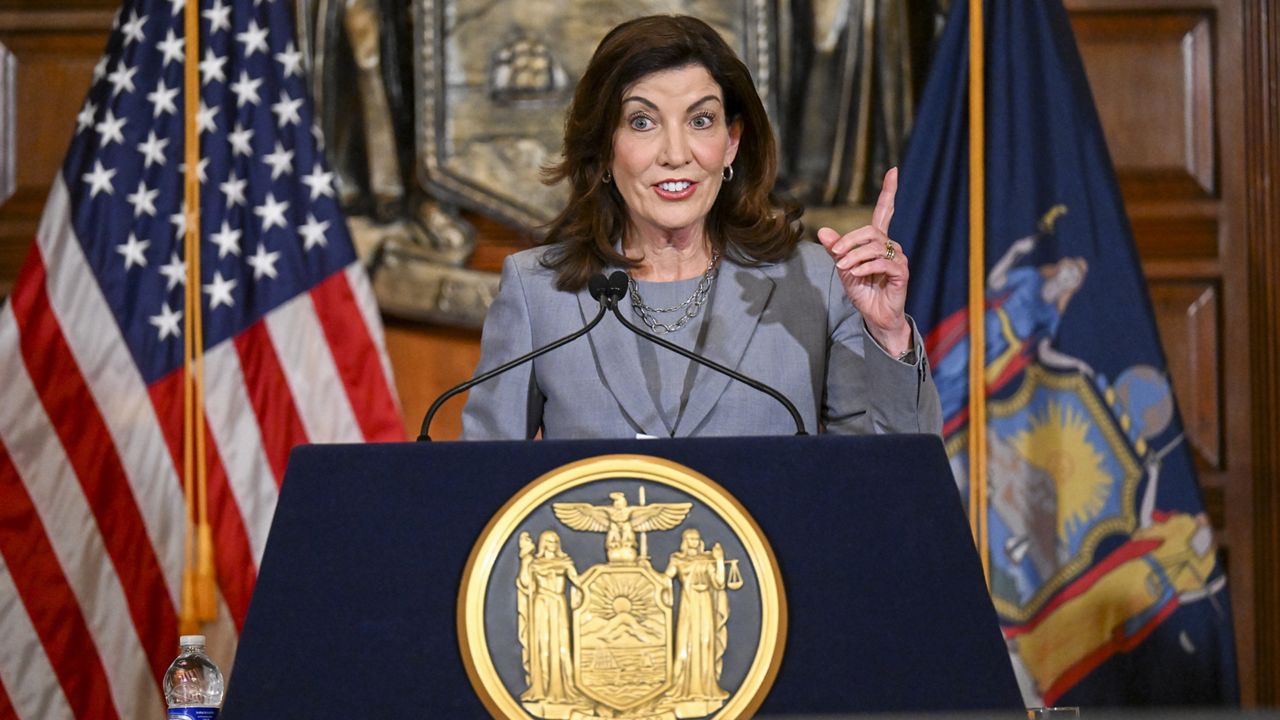A pair of bills signed into law by Gov. Kathy Hochul on Tuesday are geared toward expanding access to abortion in New York amid a renewed fight over the issue in states across the country.
Hochul signed legislation meant to guarantee access to medication abortion at the State University of New York and the City University of New York. At the same time, Hochul approved a separate bill that will allow pharmacists to prescribe over-the-counter birth control.
The legislation was approved by the governor amid ongoing legal battles over abortion across the country, especially over medication abortion in the aftermath of the decision last year to overturn the landmark Roe v. Wade ruling.
But opponents of the legislation, including the New York Catholic Conference, argued the new laws would do little to aid women and further their health care in the state.
Hochul's approval of the measures on Tuesday were a capstone to a series of actions taken in recent weeks amid the ongoing court battles over medication abortion.
"Our state from the beginning has launched this great fight," Hochul said during a signing ceremony at the Capitol. "We're going to do everything in our power to stop the back slide while expanding reproductive rights in our state."
Hochul previously announced efforts to bolster access to medication abortion, including a stockpiling of 150,000 of the abortion medication pill misoprostol.
New York officials sought to draw a contrast to the actions taken by the Democratic-led houses of the Legislature to states that have sought to restrict abortion.
"Our state Legislature obviously is standing up for women, standing up for progress, standing up for freedom and progress," said New York Attorney General Letitia James. "We are not going to let the rights we fought for stripped away."
An expansion of aboriton medication access was opposed by the New York Catholic Conference, who had previously urged lawmakers to not approve the measures. The organization called the measure "dangerous and misguided."
"Young women attending college are often experiencing true independence for the first time. They are away from family and support systems," the group wrote in a memorandum opposing the legislation. "The social pressures and availability of harmful substances combine to make campus a wholly inappropriate place to offer dangerous medication to young women, some as young as 17."



